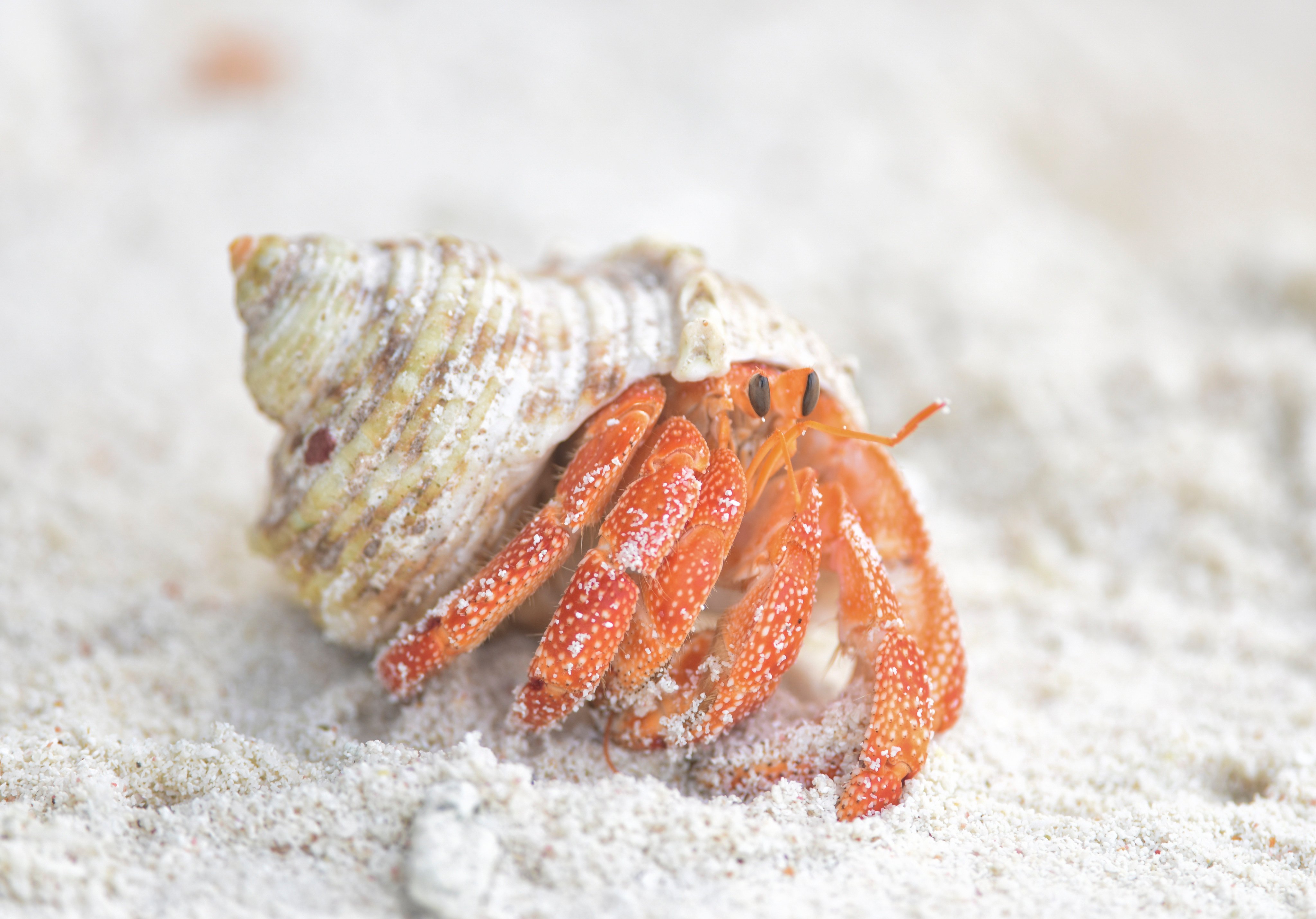3 Chinese men arrested in Japan after 160kg of hermit crabs found in suitcases
The protected crustaceans are popular as pets in China, leading to an increase in smugglers trying to capitalise on the trend

Three Chinese men have been arrested in Japan after several thousand protected land hermit crabs were found in their suitcases as police investigate whether the suspects intended to sell or keep the “natural monuments” as pets.
The alleged smuggling came to light when staff from a hotel where the visitors stayed in the southwestern city of Amami alerted environmental officials.
The guests “had asked the hotel to watch their suitcases, and the suitcases made a rustling noise” on Tuesday, police told The Japan Times newspaper.
Police detected thousands of the spiral-shelled hermit crabs, weighing around 160kg (353lbs) in total, inside the six suitcases they had left behind.
Liao Zhibin, Song Zhenhao and Guo Jiawei were arrested for possessing the crustaceans without proper authorisation, following their return to the hotel on Wednesday, Kyodo News reported.
The land hermit crabs were from a species designated as natural monuments because of their cultural and scientific value, and protected by Japanese law. Each one can sell for up to 20,000 yen (US$137).
“Our investigation is ongoing to identify whether they had [the hermit crabs] to sell them or to keep them as pets or to eat them,” police said. “We are reviewing all possibilities.”
Land hermit crabs are popular as pets in China, leading to an increase in smugglers trying to capitalise on the trend.
Last month, two Taiwanese men were arrested in Japan’s Okinawa while trying to ship out 998 land hermit crabs.
The four crab-filled cardboard boxes were caught during a routine X-ray scan by a shipping company, Taiwan News reported.
‘Fuel human greed’
Wildlife smuggling is on the rise around the world. An Interpol report in February noted that nearly 20,000 live animals, all endangered or protected species, were seized in a global operation from November 11 to December 6 last year.
“Organised crime networks are profiting from the demand for rare plants and animals, exploiting nature to fuel human greed,” Interpol Secretary General Valdecy Urquiza said in the report.
“This has far-reaching consequences: it drives biodiversity loss, destroys communities, contributes to climate change and even fuels conflict and instability.”
The live animals rescued in “Operation Thunder” involving authorities from 138 countries and regions included big cats, birds, pangolins, primates and reptiles.
“The illegal wildlife trade is still rapidly growing, highly lucrative and has devastating effects,” World Customs Organisation Secretary General Ian Saunders said.
Among the notable cases was a seizure of 5,193 live red-eared ornamental slider turtle hatchlings concealed in passenger suitcases on flights from Malaysia at Chennai airport in India.
It was the fifth attempt to smuggle the popular pets – considered an invasive species in many countries – from Malaysia and Thailand that customs thwarted last year, according to The Times of India.
The airport in Malaysia’s Kuala Lumpur has also become a major transit hub for trafficking in exotic animals, This Week in Asia reported in February after five critically endangered baby siamang gibbons were intercepted at Mumbai airport.
Last October, Chennai airport authorities detained a Malaysian woman after they found four gibbons and 52 iguanas in her suitcase. In April 2023, another Malaysian woman was caught at the same terminal with 22 snakes and a chameleon concealed in her baggage.